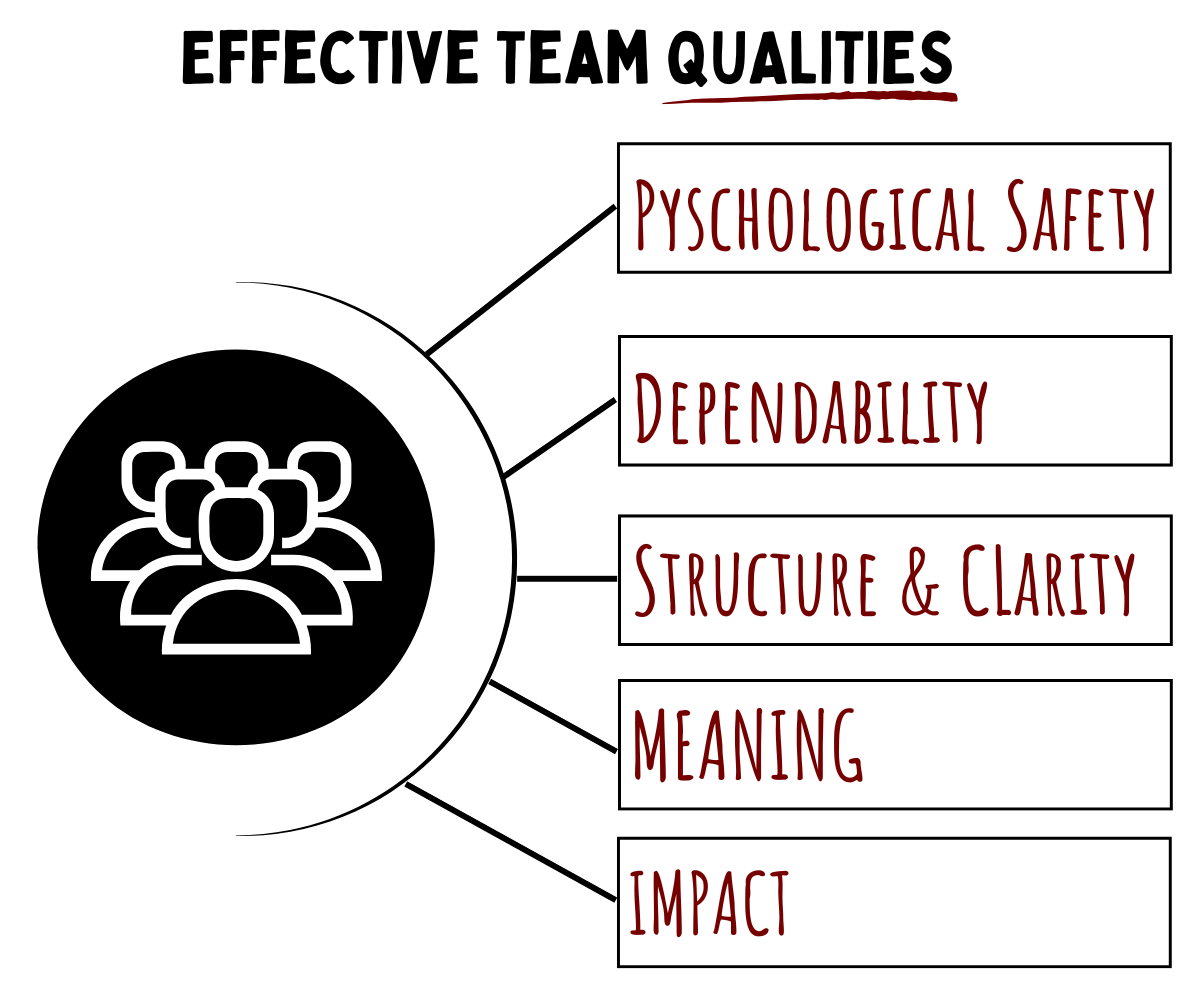5 Things Effective Teams Do Well
Insights from Google's Project Aristotle on high-performing teams
As an Engineering Manager, your success depends on your team. You need your team to collaborate effectively and deliver consistently.
But how? What makes an effective team? How can you help your team to reach there?
For many years, I believed it was just hiring the smartest people who could solve any problem. But talent alone isn’t enough. Many of us have seen “rockstar” teams fail to deliver.
Google’s Project Aristotle studied internal teams and uncovered a surprising insight: it’s not who’s on the team, but how the team works together.
Here are the five key things that effective teams do well:
1. They Create Psychological Safety
This is a fancy way of saying: Everyone feels safe to speak their mind.
In a great team, nobody is afraid to speak up, take risks, and even admit mistakes. They know they won’t be judged, laughed at, or punished for being vulnerable and honest.
Psychological safety allows team members to take on work even when it’s ambiguous. It allows them to challenge each other. Without it, teams avoid giving constructive feedback or experimenting with new ideas. They fear for their safety and work only in the comfort zone.
As an EM,
Ensure everyone has a voice in meetings. Actively solicit input, especially from quieter team members.
Respond thoughtfully to all “crazy” ideas and “silly” questions. If not, they’ll stop coming up with them.
Focus on learning from mistakes rather than assigning blame. For example, if something goes wrong, lead a team discussion on what happened and how to prevent it in the future.
2. They Rely on Each Other
In a team, people often have to work together to complete tasks. They need to divide work between themselves. As they keep their side of the commitment, they start trusting each other.
Even when they can’t finish their task but communicate regularly, the collaboration in the team becomes seamless. With high dependability, there are less conflicts and less need for intervention for you.
If team members avoid working together or prefer to tackle projects solo, it’s time for you to fix that.
As an EM,
Encourage collaboration by forming small squads (2–3 engineers) for specific projects.
Address missed commitments directly to understand what went wrong and how to improve.
Celebrate wins as a team when commitments are delivered successfully. This will reinforce the behavior.
3. They Have Clear Goals And Structure
Ever been part of a team where nobody knows what’s going on? I’ve been there due to re-orgs and leaders leaving. It’s very disruptive for teams’ ability to focus.
Even if you don’t get this clarity from the top, as an EM you have to do what you can. Clarity, both at the team level and at individual level, helps team members keep marching forward. It helps understand the reason the team exists and the goal they’re after.
Successful teams are also structured by taking individual strengths, timezones, seniority into account.
As an EM,
Define team goals and individual roles upfront. Use tools like a team charter to document your team’s vision, mission, and responsibilities.
Review and update these goals regularly with the team to ensure alignment.
Introduce light processes, like sprint planning or check-ins, to help the team stay organized and on track.
4. They Find Meaning in Their Work
Nobody wants to feel like a cog in the machine. We spend a significant amount of time at our jobs. We derive a lot of life’s meaning and purpose from it. We want to do something meaningful. We want fulfillment from our work.
Effective teams understand how their efforts contribute to something bigger, whether it’s helping customers, supporting the company, or solving important problems. This sense of purpose is a powerful motivator.
As an EM,
Connect each team member’s work to the bigger picture and show how they’re leveraging their strengths to do it.
Assign work that aligns with their aspirations and interests, not just their current skills.
Celebrate milestones and successes that reflect shared values. Example, if “helping others” is important to a team member, highlight every time you see them demonstrate that.
5. They Believe Their Work Makes a Difference
People not just want to find meaning in their work but also have some real impact. A friend of mine worked on a marketing product and every day he felt bad for spamming people’s inboxes. He felt he didn’t have a positive impact on the world. Naturally, he left the team to work on something else.
At the team level, everyone should understand the impact of their work. Whether it’s creating value for customers, solving a big business problem, or helping other product teams, they know their work matters.
As an EM,
Share customer stories or data that show how the team’s work is making a difference.
Regularly communicate how the team’s efforts align with broader business goals.
Showcase the team’s impact within the organization, like through newsletters or milestone highlights on a slack channel.
Wrapping It Up
I’m glad my myth to building an effective engineering team was busted. Clearly hiring the smartest or the most technical engineers isn’t enough to make the team effective. It’s not even a requirement.
What makes teams effective is the environment they operate in. The five traits I shared based on Google’s Project Aristotle, is a great way to create that environment.
If you’re leading a new team or just trying to improve the one you’re in, it may seem like a big list. Start small. Pick one trait to focus on this week and build from there. For me it’s “Structure and Clarity”. What’s yours?
More Resources
Team Effectiveness Discussion Guide (doc) from Google.
Leading Effective Engineering Teams book by




